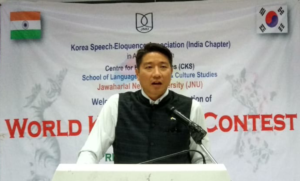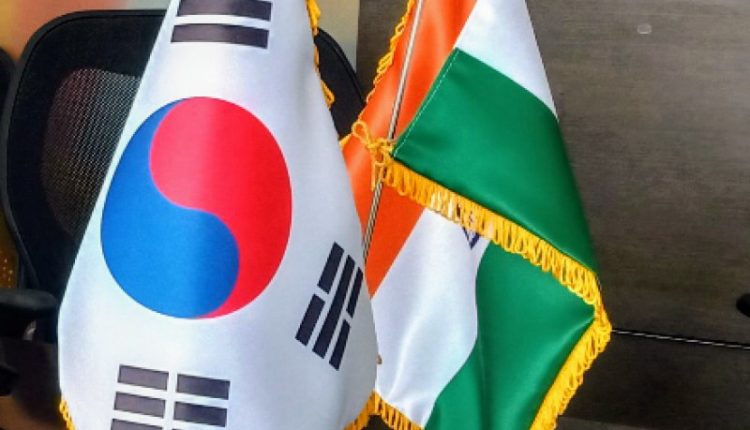What is forcing Korean companies to quit China, and skip India?
Slow in hosting Korean companies leaving China, India will have to overcome the bureaucratic hurdles and red tape. Vietnam, in contrast, acted proactively and attracted most of them to its soil. At present there are 700 Korean companies in India whereas Vietnam hosts 7000 of them.
NEW DELHI: Facing boycott by Chinese consumers, imitation of Korean technologies by Chinese firms, saturating markets, mounting operational cost, tough working conditions, and other adverse factors forced thousands of Korean companies to stage exodus from China in last four-five years.
However, the majority of these relocating companies headed towards Vietnam and other East Asian countries and skipped India that boasts of improving its ease of doing business ranking at the global level. The kind courtesy: Bureaucratic hurdles, cumbersome regulations, and red-tapism.
Vietnam today hosts 7000 Korean companies while India reels under the meager number of 700.
In the last 4-5 years, India miserably failed to attract the China-based Korean companies looking for alternate turf somewhere in Southeast Asia because of its own shortcomings. Tiny countries like Cambodia and Laos comparatively did better in hosting Korean companies than India.
As You Chang-ho, Minister Counselor for Political Affairs, Republic of Korea, puts it, “Korean companies themselves needed to come out of China because the markets there are saturated, Chinese firms imitating Korean technologies, mounting operational cost, because of the kind of difficult situation the two governments were in, and mostly because of the Chinese boycotting Korean products.”

The Minister Counselor while talking to Asian Community News (ACN) Network said these companies had sought opportunities in India as it has a vast domestic market, a good workforce, and also from India they can export to other countries.
But most of these companies skipped India because of too many bureaucratic hurdles and red-tape, he lamented.
“So many companies came out of China in 4-5 years but most of them headed towards Southeast Asian countries like Vietnam, and also Cambodia, and Laos. Vietnam has been very aggressive in hosting the companies,” added Yoo.
It’s not that they didn’t attempt to come to India. They did but went back after having bitter experience.
“The companies who came to try and divert their investment from China to India were met with some difficulties because of the kind of lots of regulations and red-tape. And those came here, it took too long for the start-up something in India. This has been going on for the last 4-5 years and most of the companies have gone to Vietnam as it offered them a very good business environment. Vietnam also provided them with incentives,” said the Minister-Counselor.
At present, there are hardly 700 companies in India whereas Vietnam hosts 7000 of them who sought investment in Vietnam after having lots and lots of difficulties in China.
When asked if the Korean government was trying to persuade these companies to come to India, Yoo said the Korean government was not directly involved as it was not directing them to go to India or Vietnam but the companies themselves were attracted by various market economies.
 “Market in Vietnam at the moment is much more attractive to these companies, and from their point of view they have to make the decision. They have to decide whether to wait for a long time to clear off the bureaucracy and red-tape, to set up their companies and factories in India or are they going to set up very instantaneously in Vietnam and start making money. This (crucial) decision they have to make.” The Minister Counselor said some companies could afford to wait for a long time to get bureaucratic hurdles to clear off in India but small companies cannot wait for 5-10 years as they need to make money quickly because of the limited amount of capital.
“Market in Vietnam at the moment is much more attractive to these companies, and from their point of view they have to make the decision. They have to decide whether to wait for a long time to clear off the bureaucracy and red-tape, to set up their companies and factories in India or are they going to set up very instantaneously in Vietnam and start making money. This (crucial) decision they have to make.” The Minister Counselor said some companies could afford to wait for a long time to get bureaucratic hurdles to clear off in India but small companies cannot wait for 5-10 years as they need to make money quickly because of the limited amount of capital.
The year 2000 may have been the decade for China, the decade of 2010 maybe was the decade for Vietnam, but the decade starting from 2020 belongs to India
China is past; India is the future for Korean companies
However, Korea’s state-run apex trade promotion organization Korea Trade-Investment Promotion Agency (KOTRA) has been striving hard to persuade Korea companies uprooting from China to come to India, not Vietnam as India is a long-term market. Vietnam is a communist country, and India is comparatively a better destination to be despite it having some difficulties.
“From the embassy point of view, when approached by these companies we tell them that India is the future. Even KOTRA does the same and it says the year 2000 may have been the decade for China, the decade of 2010 maybe was the decade for Vietnam, but the decade starting from 2020 belongs to India. This is the kind of feel we try to give to our companies,” said Yoo.
Yoo said many companies came to India with some hopes and some of them have done very well too as some state governments gave them the location, power supplies, tax holidays and they are able to make agreements very quickly and set up fast. But some companies did not meet with the same enthusiasm and they went back.
He gave the example of Korea’s fifth-largest corporate group Lotte and the world’s fourth-largest steelmaker company POSCO who could not expand their operation successfully in India because of bureaucratic hurdles.
“Lotte is a very big company in the food processing sector, and also in the hospitality, and has the biggest hotels in Moscow and Korea too. They tried to come to India and work out some deal with a well-known but stressed hotel chain. It didn’t happen because of too much red tape and bureaucracy, and they left. There are lots of examples like that,” said Yoo.
Korea’s investment in China is getting more and more difficult. For example, Hyundai Motors was a huge investment in China but they were suffering there, and they wanted to pull out of China. Now in India, they are doing quite well.
When asked if the Korean government was planning to come out with some stimulus package or incentive scheme on the lines of the Japanese government that has recently announced a $ 2.2 billion package to support Japanese companies coming out of China, Yoo said though not a package or incentive scheme was there.
“Korean government had stepped up assistance for the companies which were struggling in China about three years back.
A silver lining in the dark clouds
According to KOTRA, owing to the growing political tension between South Korea and China, and the US-China trade war, a significant score of Korean companies are uprooting their factories from China and are shifting to India.

As many as 100 small and medium scale Korean companies shifted their base to India during the current year 2019-20, and the majority of these were from China.
According to an industry estimate, there are about 50,000 Korean companies/factories operating on Chinese soil at present. And the number of Korean companies in India is under 700.
“Many small and medium Korean companies are shifting their factories from China to India, and this is under process. For them, India is the next destination instead of china. Almost 100 new Korean companies are coming and investing in India every year as it happened in the year 2019-20,” Young Kim Moon, President, KOTRA, South-West Asia told Asian Community News (ACN) Network in February this year.
Also read: India next destination for South Korean companies: KOTRA



